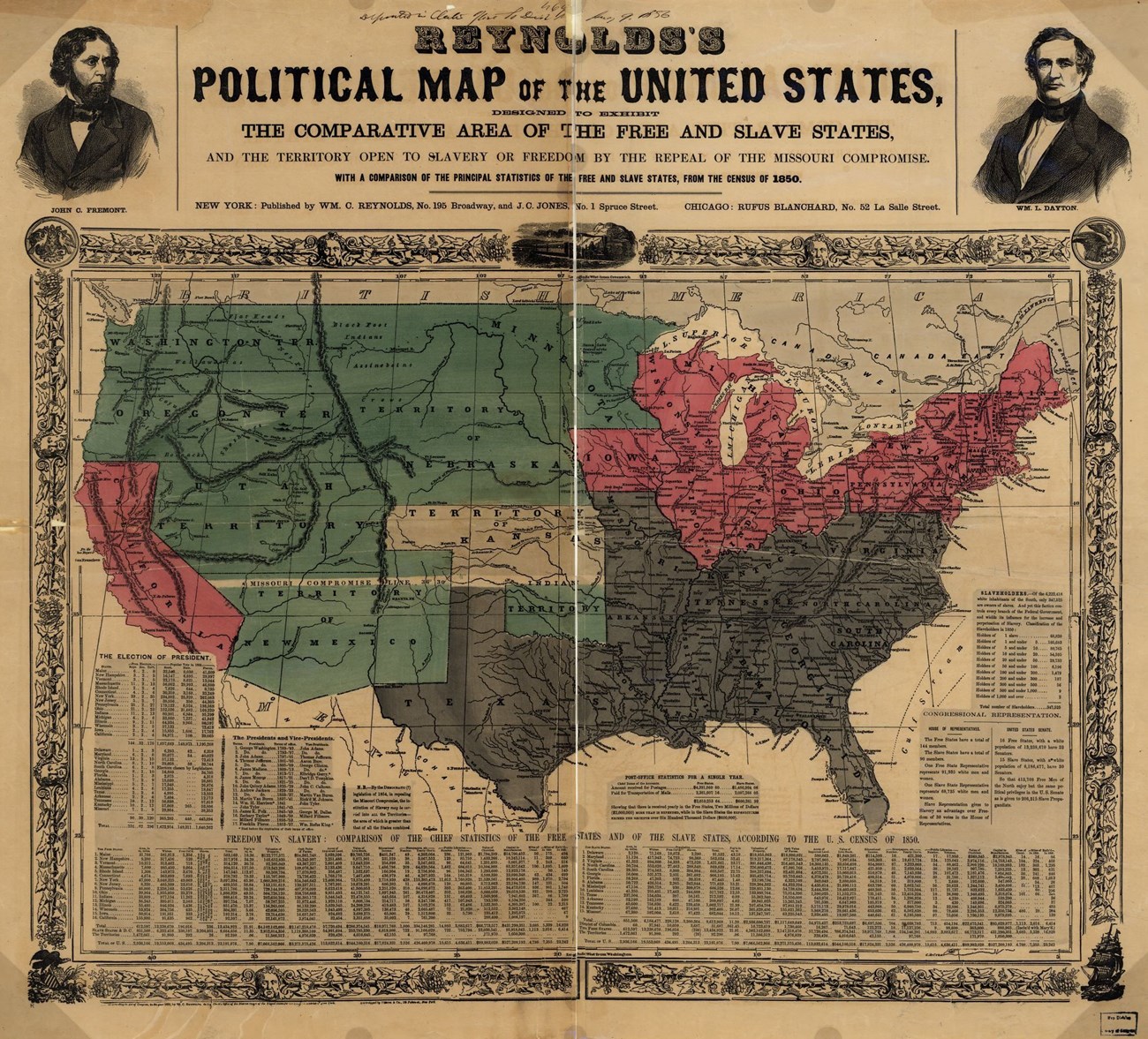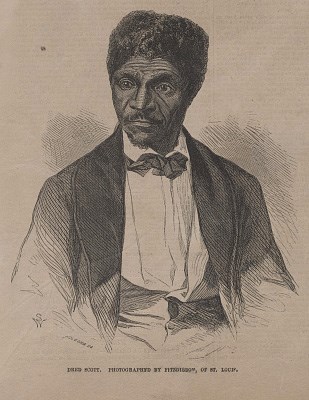
Northern Illinois University Digital Library In 1858 Abraham Lincoln and Stephen Douglas held a series of debates as they campaigned for the U. S. Senate seat from Illinois. In these debates one candidate would speak for an hour, the second for an hour and a half, followed by the first with a half-hour rebuttal. Douglas opened and closed four of the seven debates. The second of these debates was held in Freeport, Illinois on August 27, 1858. At Freeport, Lincoln asked Douglas whether the people of a territory could lawfully exclude slavery prior to the creation of a state constitution. Douglas' answer became known as the Freeport Doctrine and was another in a chain of events, all "linked" to each other, which led to Lincoln's election as the 16th President and to civil war. Douglas on SlaveryThe two "links" just before the Freeport Doctrine were the Kansas-Nebraska Act, championed by Douglas, and the Supreme Court's decision in the Dred Scott Case. 
Library of Congress Lincoln Paints Douglas into a CornerThe question Lincoln posed at Freeport, "could the people of a territory in any lawful way, against the wishes of any citizen of the United States, exclude slavery from their limits prior to formation of a state constitution," put Douglas in a quandary. If he said "no" it would displease many people in Illinois and he would likely lose the 1858 election for Senate to Lincoln. If he said "yes," he had to explain how and he risked the possibility of angering the proponents of slavery who felt it was their right to take their property (their slaves) into any territory. The defenders of slavery felt that if they couldn't they were being denied equal protection under the law. If Douglas chose the later it would hurt his hoped for campaign for the presidency in 1860. 
Library of Congress Douglas RespondsDouglas answered, "the people have the lawful means to introduce it, or exclude it as they please, for the reason that slavery cannot exist a day or an hour anywhere, unless it is supported by local police regulations. Those regulations can only be established by the local legislature, and if the people are opposed to slavery they will elect representatives to that body who will by unfriendly legislation effectively prevent the introduction of it into their midst." In other words, Douglas was saying territorial legislatures could not directly prohibit slavery, but they could pass laws that would make it difficult for slavery to exist or fail to pass laws that were needed to protect slavery like a fugitive slave law and the other customary slave codes. Events Leading to the Civil WarKansas-Nebraska Act (1854)Senators Glenville Dodge (Iowa) and Stephen Douglas sponsored many "Nebraska Bills" during the late 1840's and 1850's. The purpose of the bill was to create a territorial government in the vast land between the Missouri River and the Continental Divide [and therefore make a northern route for the Transcontinental Railroad more feasible]. Every attempt to create a Nebraska Territory was defeated by Southern Senators because any states carved out of the territory would be free because of the Missouri Compromise. In 1854 Stephen Douglas sponsored the Kansas-Nebraska Act. It would create two territories and allow the people who moved there to decide if they would be slave or free territories. 
Library of Congress Dred Scott Decision (1857)In March of 1857, just a few days after James Buchanan was inaugurated as the fifteenth President, the Supreme Court issued its decision in the Dred Scott Case. Scott was a slave who had been in a part of Wisconsin Territory where slavery was illegal because of the Missouri Compromise. The Supreme Court had originally voted 5 to 4 on the case, but at the last minute two Justices from Pennsylvania [Buchanan's home state] switched to the majority. The Supreme Court said: Freeport Doctrine (1858)In the Freeport Debate Lincoln backed Douglas into a corner by asking, in light of the Dred Scott case, how could a territory prevent slavery? If Douglas said they couldn't, he would lose votes in Illinois where most of the people supported a restriction on slavery in the territories. If he said they could, he would lose support in the South and this might hinder his chances of being elected President in 1860. Douglas said a territory could prevent slavery by failing to pass favorable legislation. In other words the territorial legislature could make it difficult for slave owners to re-capture escaped slaves. Because the Lincoln v. Douglas debates received national coverage the South now saw Douglas as an enemy to slavery. 
Library of Congress Southern Demand for a Federal Slave Code (1860)The Freeport Doctrine caused the South to demand a Federal Slave Code. They wanted the Federal Government to guarantee slavery could exist in all territories. They also wanted the Federal Government to guarantee that a slave owner could travel anywhere in the North with his slave, without having the slave taken away from him by a state court. [Just like an Ohio farmer could travel with his piece of property, a horse, anywhere in the South without having it taken away from him by a state court].
For Further Reading Donald, David Herbert. 1995. Lincoln. New York: Simon and Schuster. Jaffa, Harry V. 1959. The Crisis of the House Divided. Garden City, NY: Doubleday. Johannsen, Robert W. 1973. Stephen A Douglas. New York: Oxford University Press. McPherson, James M. 1988. Battle Cry of Freedom. New York: Ballantine Books. Zarefsky, David. 1993. Lincoln Douglas and Slavery: In the Crucible of Public Debate. Chicago: University of Chicago Press. The Collected Works of Abraham Lincoln - 2004, http://www.hti.umich.edu/l/lincoln |
Last updated: May 11, 2021
